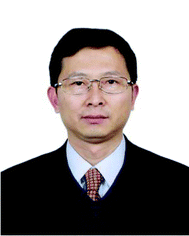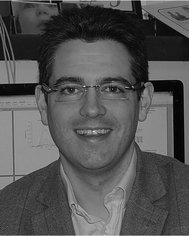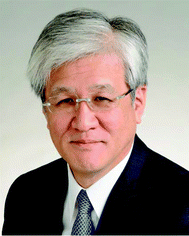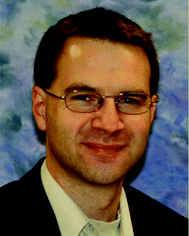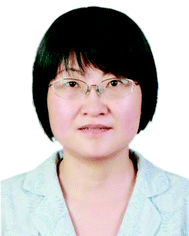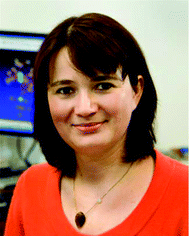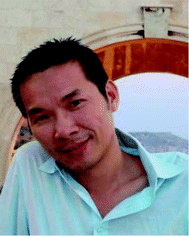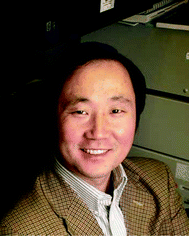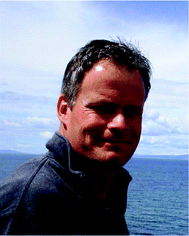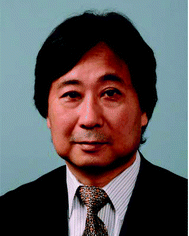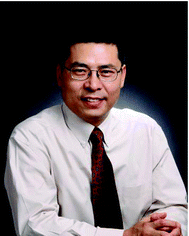Meet the Editorial Board of Inorganic Chemistry Frontiers
Professor Song Gao
Editor-in-Chief
Professor Song Gao is Professor of Inorganic Chemistry at Peking University (PKU), China. His research interests are magnetic ordered coordination polymers, molecular nanomagnets, molecular and crystal engineering, and multifunctional molecular materials. He was a Humboldt Research Fellow at TH Aachen from 1995 to 1997. He has been Cheung Kong Professor at the College of Chemistry and Molecular Engineering at Peking University since 2002, and served as dean of this college from 2006–2010. Professor Song Gao now is PKU Provost and deputy director of Beijing National Laboratory for Molecular Sciences. He received the State Natural Science Award (the 2nd Grade) in 2006 because of his contribution in the area of magnetic coordination polymers and molecular nanomagnets. He was elected as a member of the Chinese Academy of Sciences in 2007 and in the same year he became a Fellow of the Royal Society of Chemistry (UK).
Professor Lee Cronin is the Regius Chair of Chemistry at the University of Glasgow, UK. Cronin is recognized for his creative studies in the field of inorganic chemistry, specifically the self-assembly and self-organization of inorganic molecules and the engineering of complex systems leading to the emergence of system-level behaviours. Cronin has published over 240 papers that have amassed >6000 citations in the world's leading scientific journals and has given over 180 invited talks. He has over 40 national and international collaborators and has active research exchanges with Beijing University of Chemical Technology, Arizona State, Emory, Hokkaido University, Tokyo University, University of Aachen, North East Normal University, and Northwestern as well as numerous companies in the UK and around the world. In 2009 Cronin was elected to Fellowship of the Royal Society of Edinburgh and between 2006 and 2011 he was an EPSRC Advanced Research Fellow.
Professor Hiroki Oshio is Professor of Inorganic Chemistry at the University of Tsukuba, Japan. His research has focused on molecular magnetism, including bistable and spin-crossover systems. He graduated from Kyushu University in 1977 and obtained his PhD in 1982. After a postdoctoral fellowship at Marquette University between 1982 and 1984, he was appointed as a research associate at the Institute for Molecular Science (Okazaki, Japan) in 1985. In 1992 he moved to Tohoku University as an Associate Professor, before he was appointed as a Professor at the University of Tsukuba in the Graduate School of Pure and Applied Sciences in 2001. He has received the CSJ Award for Creative Work (2005) and has accumulated over 200 peer-reviewed research publications.
Professor Oleg V. Ozerov was born in Novosibirsk, Russia in 1976 and spent his formative years there, and in Moscow, Russia. He received his undergraduate training at the Higher Chemical College of the Russian Academy of Sciences. In 1996, Oleg moved to the United States to attend graduate school at the University of Kentucky where he worked with Prof. Folami Ladipo on the chemistry of titanium complexes supported by calix[4]arene-derived aryl oxides. After receiving his PhD degree in 2000, Oleg spent two years as a postdoctoral associate in the group of Prof. Ken Caulton at Indiana University investigating new chemistry of ruthenium and rhenium in a pincer ligand context. In 2002, Oleg joined the Department of Chemistry at Brandeis University as an assistant professor of chemistry and earned promotion to associate professor with tenure in 2006. In January 2009, Oleg relocated to Texas A&M University where he is now Professor of Chemistry and Coordinator of Graduate Recruiting. His research interests are in synthetic organometallic chemistry and its diverse applications in catalysis and energy-related problems. Oleg has been honored with the Alfred P. Sloan Research Fellowship (2006), the Camille Dreyfus Teacher-Scholar Award (2007), the ACS Award in Pure Chemistry (2012), and the Norman Hackerman Award in Chemical Research (2012).
Professor Yi Xie received her BS from Xiamen University (1988) and her PhD from the University of Science and Technology of China (1996). She is now a Principal Investigator (PI) of the Department of Nanomaterials and Nanochemistry, Hefei National Laboratory for Physical Sciences at the Microscale and a full professor of the Department of Chemistry, University of Science and Technology of China. Her research interests are in solid state and materials chemistry. She was appointed as the Cheung Kong Scholar Professor of inorganic chemistry in 2000, and is also a recipient of many awards, including China Young Scientist Award (2002), China Young Female Scientist Award (2006) and IUPAC Distinguished Women in Chemistry/Chemical Engineering Award (2013).
Professor Paula Diaconescu joined the UCLA Chemistry & Biochemistry department in 2005, after spending two years as a postdoctoral fellow in the group of Prof. Robert Grubbs at the California Institute of Technology. She obtained her PhD degree under the supervision of Prof. Christopher Cummins at Massachusetts Institute of Technology working on arene-bridged complexes of uranium. Her earlier education was completed in Romania, where she obtained her BS from the University of Bucharest and worked on coordination complexes of transition metals and lanthanides at the University Politehnica of Bucharest. Besides awards received from UCLA, she received the Alfred P. Sloan Fellowship and the NSF CAREER Award. The Diaconescu research group is interested in various aspects of metal–ligand cooperation stemming from using ferrocene-based supporting ligands with applications ranging from small molecule activation to the formation of biodegradable polymers. Specific focuses of the group are the fundamental understanding of f element chemistry and factors that determine catalytic activity.
Professor Xile Hu received a BS degree from Peking University (2000; advisor: Jianhua Lin) and a PhD degree from the University of California, San Diego (2004; advisor: Prof. Karsten Meyer). He then carried out a postdoctoral study at the California Institute of Technology (advisor: Prof. Jonas Peters) before joining the faculty of the École Polytechnique Fédérale de Lausanne (EPFL) as a tenure-track assistant professor in 2007. He is currently associate professor at the same institute. His research interests span from organometallic chemistry, synthetic methodology, and homogeneous catalysis to bio-mimetic and bio-speculated coordination chemistry to electrocatalysis and artificial photosynthesis. He has been recognized with several awards including a European Research Council (ERC) starting grant (2010), the Werner Prize from the Swiss Chemical Society (2011), and the Chemical Society Reviews Emerging Investigator Lectureship (2013).
Professor Yi Lu received his BS degree from Peking University in 1986, and his PhD from the University of California at Los Angeles in 1992 under Professor Joan S. Valentine. After two years of postdoctoral research in Professor Harry B. Gray’s group at the California Institute of Technology, Dr. Lu started his own independent career in the Department of Chemistry at the University of Illinois at Urbana Champaign in 1994. He is now Jay and Ann Schenck Professor of Chemistry in the Departments of Chemistry, Biochemistry, Bioengineering and Materials Science and Engineering. He is also a member of the Center for Biophysics and Computational Biology and Beckman Institute for Advanced Science and Technology. His research interests lie at the interface between chemistry and biology. His group is developing new chemical approaches to provide deeper insight into biological systems. At the same time, they take advantage of recently developed biological tools to advance many areas in chemistry. Specific areas of current interests include (a) design and engineering of functional metalloproteins as environmentally benign catalysts in renewable energy generation and pharmaceuticals; (b) fundamental understanding of DNAzymes and their applications in environmental monitoring, medical diagnostics, and targeted drug delivery; and (c) employing principles from biology for directed assembly of nanomaterials and its applications in photonics and sensing. Dr Lu has received numerous research and teaching awards, including the Fellow of the American Association for the Advancement of Science (2007), Early Career Award, Society of Biological Inorganic Chemistry (2007), Howard Hughes Medical Institute Professor Award (2002), Camile Dreyfus Teacher-Scholar Award (1999), Alfred P. Sloan Research Fellowship (1998), Research Corporation Cottrell Scholars Award (1997), and the Beckman Young Investigators Award (1996).
Professor John McGrady graduated with a BA in Chemistry from the University of Oxford in 1990, and then studied for a PhD at the Australian National University in Canberra (graduated 1994). Following academic appointments at the Universities of York and Glasgow, he was appointed as Professor of Computational Inorganic Chemistry at the University of Oxford in 2009. His research interests lie in the electronic structure and properties of inorganic compounds, with a particular emphasis of systems with open electron shells.
Professor Hiroshi Nishihara received his BSc degree in 1977, MSc in 1979 and DSc in 1982 from The University of Tokyo. He was appointed research associate in the Department of Chemistry, Faculty of Science and Technology at Keio University in 1982, and he was promoted to lecturer in 1990, and associate professor in 1992. Since 1996, he has been a professor in the Department of Chemistry, School of Science at The University of Tokyo. He also worked as a visiting research associate at the Department of Chemistry at the University of North Carolina at Chapel Hill (1987–1989), and as a researcher of PRESTO, JRDC (1992–1996). His research has been focused on the creation of new electro- and photo-functional materials comprising both transition metals and p-conjugated chains, and invention of unidirectional electron transfer systems utilizing molecular layer interfaces. He received a Young Scholar's Lectureship, the Chemical Society of Japan in 1994 and the Chemical Society of Japan Award for Creative Work in 2003. He received a Professorship at the University of Bordeaux I in 2005 and at the University of Strasbourg in 2009, Docteur Honoris Causa from the University of Bordeaux I in 2011, and Distinguished Lectureship of Hong Kong Baptist University in 2012.
Professor Zhiping Zheng received his BS (1987) and MS (1990) degrees in chemistry from Peking University, China, and his PhD from UCLA in 1995 with Professor M. Frederick Hawthorne. After conducting postdoctoral research with Professor Richard H. Holm at Harvard University, he joined the faculty of the University of Arizona in 1997, where he is now Professor of Chemistry. His current research interests include the synthetic and structural chemistry of cluster compounds of both lanthanide and transition metal elements. His contributions in research and teaching have been recognized by a number of awards, including the US National Science Foundation CAREER Award, International Junior Research Award from the European Rare Earths and Actinide Society, the IUPAC Young Observer, and Teaching Excellence from the Honors College, University of Arizona.
| This journal is © the Partner Organisations 2014 |

